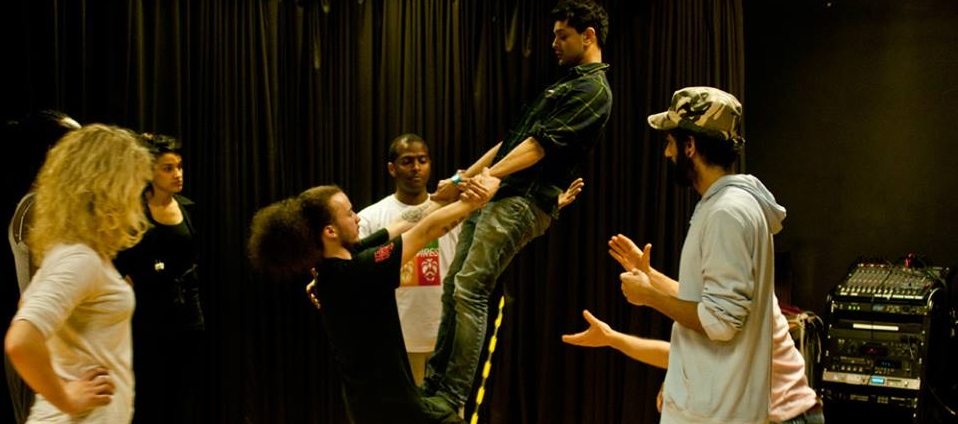Students become producers with IATL funding
Just as all of Warwick’s drama societies are constantly busy directing as well as creating new student work, IATL are also involved considerably in the creation of student performance. Through their “Student as Producer” programme, an application process which allows students to create their own work in a no-holes-barred interdisciplinary environment, IATL have funded three projects which will be culminating in performances at the end of this term. Ed Franklin and Jack Morning-Newton, both third year English and Theatre students and Sam George, a second year Theatre and Performance student, are all producing their own work after receiving funding and support through the IATL scheme.
“There’s a great deal of freedom working with IATL” says Franklin, “Part of what I really wanted to do with this project was to give actors ownership over the production as much as over their performances. There’s nobody designing set or lighting for us, nobody sourcing props or stage-managing the show: the whole process has been a conversation between me and the cast.” Morning-Newton agreed that building a show through IATL allowed them a lot more creative freedom with his piece, “We liked the idea of doing it through IATL because of the flexibility that it offered us in terms of defining what our schedule would be.” Yet George points out that the focus on the interdisciplinary was also an important aspect of IATL’s appeal, “We felt like devising projects would be helped by finding influences from interdisciplinary sources – politics, life sciences, music… It has been a learning process and was always intended to be so, and IATL was a very supportive environment for this.”
Although the focus for each of the student producers has been creating a piece from scratch, the projects could not be more different from each other. Franklin is reinventing Henrik Ibsen’s classic Hedda Gabler in an attempt to reinvigorate some of the life and scandal that contemporary audiences of the piece experienced: “When Ibsen was writing at the end of the nineteenth century, his plays were surprising and radical… if you look online at images of various productions of Hedda, they all look the same. We’re trying to inject this 120 year-old play with the shock of the new.” George’s project plays on the drama society title with A Piece of Cod which focuses on the need to have total freedom of inspiration and creation when devising a piece. “Starting a devising project is immensely difficult due to the uncertainty around what a performance may look like and how rehearsals will work when the idea is first formed, and Piece of Cod aims to help people get projects on their feet.” Morning-Newton’s project too focuses on the form of creation from nothing but with a much more direct theme, “Our project is a devised piece attempting to ask questions about community in 21st Century Britain and the globalised world. We are trying to make a show which is primarily an artistic response to this question, rather than very academic.” Although this play is not yet named, apparently the title Cake: 4 Realz is currently the main contender.
Jonathan Heron, who works closely with IATL and the student productions that are supported by them, believes that the secure, creative yet professional environment that this scheme can provide allows students to flourish theatrically: “The IATL Student as Producer projects showcase and celebrate student creativity, often being the first step towards professional theatre collectives (recent examples have include Fat Git Theatre and Barrel Organ). Having a space for performance projects outside of your home department or the drama societies often enables students to take more risks and experiment more freely.”
There are three different grants that students can apply for under the Student as Producer scheme, Research, Collaboration and Performance. These allow a student to either research a particular area outside of the curriculum that they are interested in, consider the method of collaboration in performance (whilst focusing on IATL’s key themes) or to create a performance whilst having access to IATL’s resources, room spaces and advice. If successful, an applicant will also receive a grant in order to support the project. “IATL gives you some great rooms to rehearse in, and £200 to spend on whatever you need, which is really good! Also Jonny and Amy in IATL are really supportive and fun” says Morning-Newton.
“These projects demonstrate the ways in which IATL is a welcoming space for good ideas and challenging performance work” Heron comments, “I wish Ed, Jack and Sam the best of luck for their performances this term, and I invite other students to apply for Spring Term projects by the deadline of Wednesday Week 10.”
Franklin also told the Boar about the significance of this creative freedom to students: “At a time when it feels like ideals of creativity and imagination are being consistently devalued – by our own university management and by politicians like Nicky Morgan who seem to think that the Arts and Humanities are dead – it’s vital that IATL continue working to fight the corner of interdisciplinary study, collaborative study and artistic learning.”
All three of these performances will be shown 26th November – 5th December, email IATL@warwick.ac.uk if you are interested in seeing these performances.

Comments (1)
The ground breaking research experiments in Warwick undergraduate courses that led to the IATL being established was criticised as ‘meddling with our education’ by the Warwick Boar. Perhaps students will now realise why their opinions are taken with a pinch of salt.